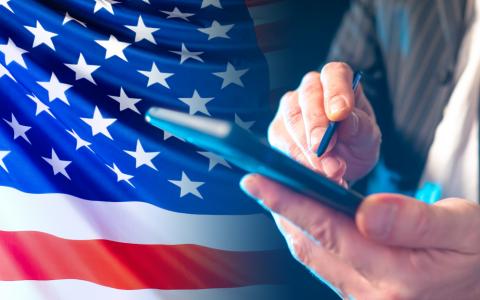
Celebrating E-sign Day with DrySign
On June 30th, 2000, President Bill Clinton signed the ESIGN Act, legalizing digital signatures in the USA. This was the spark that initiated the wave of digitization, which is still causing ripples in virtually every industry vertical. In 2010, the US House and the Senate decided to observe June 30th as the National ESIGN Day to raise awareness about digital signatures and promote its advantages in e-commerce. With the legalization of electronic signatures, medical professionals have seen improvement in their patient experiences, educational institutions have succeeded in adding value to their offerings, and governance has become more transparent & accountable. In addition, businesses and organizations have scaled up productivity while addressing traditional paper-based workflows pestering administrative teams.
This ESIGN Day, let’s look at the contributions of digital signatures in equipping businesses and professionals with a holistic solution that is efficient, innovative, convenient, and sustainable.
Moving towards a greener tomorrow with DrySign
On average, Americans use 85,000,000 tons of paper annually. That’s a stat that needs immediate attention. That is where digital signatures come into the picture. Did you know that 41% of companies print half of their total paper usage only to get them signed? Considering the fact that 40% of the wood goes into making paper and paper products, we are looking at tremendous savings by simply switching to digital signatures. In addition, manufacturing one sheet of A4-sized paper requires 10 liters of water. So by avoiding printing documents only to get them signed, we are saving trees and enough water to avert a water crisis. In the long run, if we continue resorting to paper-based workflows, the impact on the environment could be devastating. So on this ESIGN Day, let’s resolve to go greener with digital signatures.
Also read: The ESIGN Act and the UETA under the Microscope
Helping businesses and government bodies do what they do best
If yours is a financial institution or a legal firm, you must be familiar with the typical nuances of paper-based, manual workflows. Handling, storing, preserving, and retrieving paperwork requires dedicated infrastructure and workforce in many cases. Eventually, it’s these hidden costs that sum up to become a small fortune. By adopting digital signatures, all the savings that your business reaps can be directed towards strengthening your core offerings and providing a better customer experience.
E-governance is the future we are looking at. This means that during the weekend, you might not need to spend hours in a queue in front of a disgruntled government employee just to sign some paperwork. Instead, you would be able to fill forms, attach documents, and sign them online. We can expect unmatched convenience and security from digital signature solutions in this promising picture of digital governance. Moreover, detailed logs of usage history can drastically reduce the chances of shady agreements and contracts signed by high-ranking government officials. On this ESIGN Day, let’s pledge to go digital with e-signatures and bid farewell to heaps of paperwork.
Where is this digital revolution leading us?
What started as clay seals, inscriptions on stone tablets, quills, and pens have now evolved into a stylus. With digital signatures eventually becoming the new normal, we can expect authenticating foreign trade, notarization, and other forms of validations to go online. Overall, we can expect innovative transformations in every conceivable sector, which means fewer errors, simple and efficient operations, enhanced decision making, savings in cost and time, ramped up productivity, improved collaboration and communication, and lots more!
For now, on this ESIGN Day, let’s be thankful for the legalization of digital signatures with regulations like the ESIGN act and the UETA, paving the way towards revolutionary developments and transformations across an array of industry verticals.
Sources:
https://www.msbdocs.com/10-surprising-stats-about-esignatures
Found this interesting? Share on your socials to let others know:
